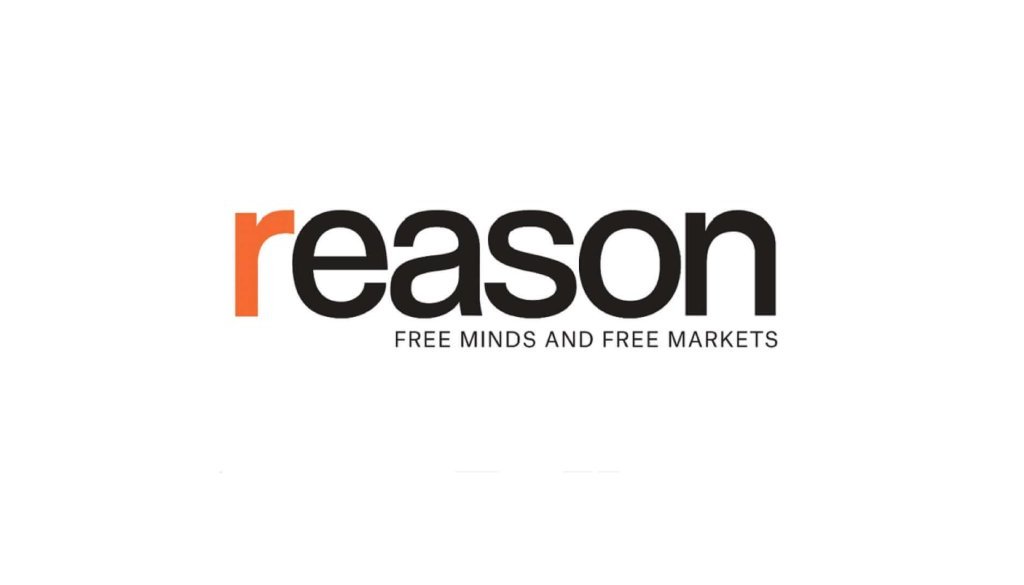Trad Wives and Tallow Fries: How the Wellness Wars Flipped Health and Food Politics Upside Down
“I don’t want to be told how many calories are in my Big Mac meal or my quarter pounder meal. I don’t want the government telling me that I can’t put salt on my food,” Sean Hannity declared on Fox News in 2010. “I like junk food. I like McDonald’s. I like Wendy’s. I like Burger King. I love Kentucky Fried Chicken.”
This was a common sentiment for conservatives of the era, a time when many on the right viewed attempts to promote health as left-wing and therefore suspect. Some of this Republican pushback was rooted in righteous opposition to intrusions on the free market and consumer choice,as when Democrats attempted to impose sin taxes on sodas or limit the size of sugary drinks stores could sell. But too often, it seemed more like oppositional defiance disorder.
During the 2008 presidential campaign, for example, conservatives spent multiple news cycles mocking Barack Obama’s alleged arugula consumption. After her defeat, Sarah Palin, the former Alaska governor and GOP vice presidential hopeful, handed out sugar cookies at an elementary school and drank from a Big Gulp soda cup onstage at the Conservative Political Action Conference. Republicans repeatedly mocked first lady Michelle Obama’s healthy living campaign, Let’s Move!, even when it proposed no mandates. The first lady’s 2011 comment that babies “who are breast-fed longer have a lower tendency to be obese” unleashed a torrent of criticism, with right-wing pundit Michelle Malkin calling her “Big Mother.” Rep. Michele Bachmann (R–Minn.) derided an IRS announcement that people could deduct the cost of breast pumps as “the new definition of a nanny state.”
Flash forward to 2025. Now wellness consciousness is flourishing anew—on the right.
A Republican president is complaining about “the industrial food complex.” State GOP lawmakers are leading the push to ban “toxic chemicals” in school lunches. “Food babe” Vani Hari—a delegate at Democrats’ 2012 convention—attended a meeting at the White House. Rank-and-file Republicans rave against seed oils on social media. Questioning Big Pharma may well get you labeled right-wing.
Sounding suspiciously like Michelle Obama, Republican West Virginia Gov. Patrick Morrisey recently introduced a new statewide health initiative that includes pillars such as “move your body, change your life” and a pledge to clean up school lunches. Not only did President Donald Trump appoint Robert F. Kennedy Jr.—a public health activist with long ties to the Democratic Party—to run the Department of Health and Human Services (HHS), but Hannity interviewed Kennedy about how modern foods are acting as “poison,” a word Kennedy has also used to describe sugar more generally.
The days of Republicans defending Big Macs and Big Gulps are over. The right has entered its MAHA era—a Kennedy riff on Trump’s Make America Great Again acronym that demands we Make America Healthy Again.
The MAHA agenda is diverse and sometimes contradictory. It’s tied together by an outsider’s sensibility that questions traditional credentialed health experts and promotes a DIY approach to personal health. It encompasses everything from fighting childhood obesity to studying the alleged links between vaccines and autism.
Removing soda from food stamp benefits, taking psychedelics for depression, fostering early diagnoses, promoting raw milk, banning certain food dyes, and cleaning up “nuclear waste and toxins” have all been described as MAHA. So have scrutinizing farm subsidies, rejecting the fluoridation of water, ditching plastic containers, eschewing “ultra processed foods,” building better infant formula, and investigating Kellogg’s for calling its cereal “healthy.”
Some of those issues—raw milk, welfare reform—might have fit right in with the GOP agenda of 2014, or 2004, or 1980. But others are ideas most associated with the likes of hippie health-store shoppers, colloidal silver–swilling yoginis, doula-promoting co-op moms, and big business–bashing Green voters—in other words, crunchy-left types traditionally more at home among Democrats than Republicans.
“The age of Big Gulp conservatism is over,” says Breitbart writer John Carney. “Now we’re into the protein- and blueberry-maxxing age.” And Carney—who jokingly calls yogurt with pomegranate seeds and blueberries his “neofascist breakfast“—thinks this is great. “I’d rather be on the side that’s healthy,” he says.
This isn’t just a story about MAGA going health nut; a lot of health nuts went MAGA too, partly as a rejection of the Democratic Party’s centralized public health dogmas, especially during the pandemic. The story of how we got here involves fertility fears and lentil wars, dietary science and social justice, losing our religion and gaining Obamacare. Perhaps most of all it involves COVID-19.
MAHA can be at least partially understood as a populist response to expert failures and a rejection of top-down control when it comes to public and individual health. But it’s also built on unfounded suspicions—an all-purpose skepticism that sometimes extends to actions proven to be beneficial—along with a lack of perspective about relative risk. Its relationship with Kennedy, who has a long history of pushing dubious health ideas and is now America’s top health bureaucrat, fits uncomfortably with both the movement’s DIY ethos and its claims to provide a better path to healthy living.
Where it’s going remains unclear. Toward dismantling dangerous health orthodoxies, or toward creating new ones? Toward more medical and food freedom, or toward more government control—this time with more saturated fat?
Right-Wing Hippies
In 2002, the right-wing pundit Rod Dreher started writing about “crunchy cons,” a cohort that combined conservative politics and traditionalist sensibilities with a penchant for organic vegetables, composting, and free-range livestock. Crunchy cons rejected the idea that “suburban architecture, lousy food, chain restaurants, bad beer, and scorn for the arts” were necessarily part of the conservative project, Dreher wrote. That crunchiness had a long lineage: As far back as the 1970s, groups like the John Birch Society were promoting alternative medicine.
So the conservative-hippie convergence isn’t new. But today’s MAHAcons have gone far beyond the niche that Dreher observed a few decades ago. Now mainstream Republican politicians and pundits are on board. Kennedy, who presides over HHS’ vast budget and sprawling bureaucracy, is their avatar.
He’s not exactly who you’d expect as a right-wing leader. Kennedy spent most of his career as an environmental lawyer, suing private and public entities over pollution. President Barack Obama reportedly considered him to lead the Environmental Protection Agency. But like many of the people Dreher wrote about, Kennedy is deeply suspicious of industrially processed food, pharmaceutical corporations, and the threat of supposedly dangerous toxins in modern products of all kinds. Over the years, he started to become known for his conspiracy theories and warnings about vaccines.
Until recently, he seemed content to fight his fights through the courts and public opinion. That changed in 2023, when Kennedy announced his bid for the presidency, first as a Democrat and then as an independent. In summer 2024, Kennedy suspended his campaign and endorsed Trump.
In his first months atop HHS, Kennedy presided over thousands of cuts to the agency’s work force and toured the country to tout the MAHA message. Influenced by him, Republican states have been seeking permission to remove soda from the list of things that can be purchased with Supplemental Nutrition Assistance Program (SNAP) benefits (a.k.a. food stamps), and reconsidering school lunches. “I urge every governor to champion legislation that bans ultraprocessed foods and dyes in public schools, and submit a waiver to the [Department of Agriculture] to remove soda from SNAP,” Kennedy said in April.
But Kennedy is a cultural figure as much as he is a bureaucrat—a movement figurehead whose name has become a marketable meme. In February, the diner chain Steak ‘n Shake promised that by March 1, fries at all locations would “be RFK’d!” It followed up on the promise in April, announcing that its french fries would henceforth be cooked in “100% all-natural beef tallow” rather than the seed oils that are among Kennedy’s biggest targets.
Kennedy isn’t the only alt-wellness figure with Trump’s ear. In May, Trump nominated for surgeon general Casey Means, a functional medicine doctor who co-founded the DIY-focused health tracking company Levels and co-wrote—with brother and MAHA influencer Calley Means—Good Energy, about unhealthy lifestyles leading to mitochondrial problems that fuel chronic disease.
The change in the way the right talks about these issues seems like it “happened overnight, and it happened without a mea culpa, without an apology. It’s the craziest thing,” says Robb Wolf, a biochemist and best-selling health writer who co-founded the electrolyte drink company LMNT. “I think there was this collective realization by a bunch of people on the right like, ‘OK, the left is crazy on food'”—and with Kennedy, “there’s an opportunity to stick it to the left.”
The Left’s Lentil Wars
One reason MAHA made inroads in a space once dominated by the left is because the left became both too strident and too compromised to hold onto the space.
Consider what happened to the “Slow Food” or “Real Food” movement. A central figure was author Michael Pollan, whose maxim was “Don’t eat anything your great-grandmother wouldn’t r
Article from Reason.com

The Reason Magazine website is a go-to destination for libertarians seeking cogent analysis, investigative reporting, and thought-provoking commentary. Championing the principles of individual freedom, limited government, and free markets, the site offers a diverse range of articles, videos, and podcasts that challenge conventional wisdom and advocate for libertarian solutions. Whether you’re interested in politics, culture, or technology, Reason provides a unique lens that prioritizes liberty and rational discourse. It’s an essential resource for those who value critical thinking and nuanced debate in the pursuit of a freer society.



